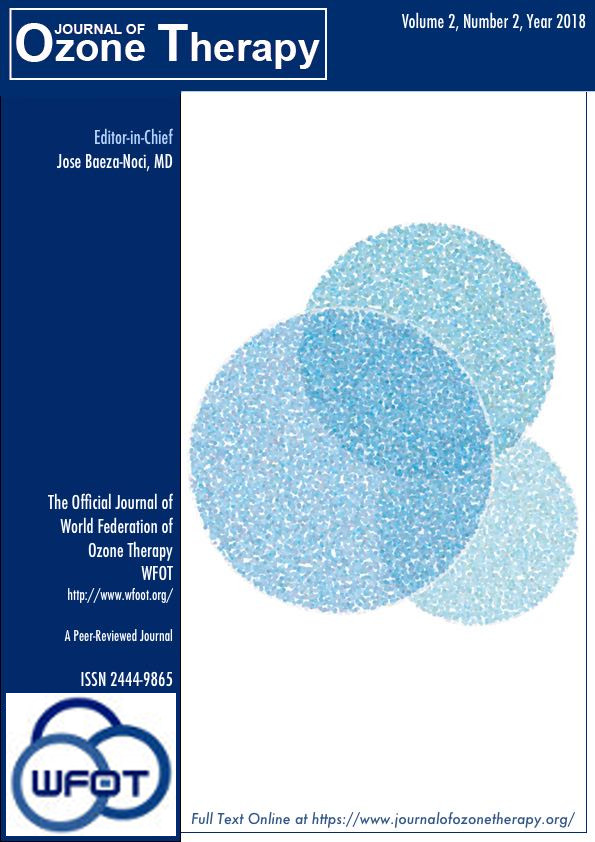Neurological deficits treated with ozone therapy [abstract]
DOI :
https://doi.org/10.7203/jo3t.2.2.2018.11155Mots-clés :
ozone therapy, neurologic diseases Résumé
Résumé
Patients and methods.
A total number of 35 patients with neurological déficits, like cerebrovascular accident (CVA), trigeminal neuralgia, post herpetic neuralgia, meningitis, cervical myelopathy, demyelinating disease, acoustic neuroma, muscular neuropathy and parkinsonism were treated with ozone therapy in our institution.
Results.
Group 1) Hemorrhagic - 6 patients
Group 2) Ischemic - 29 Patients
Both the groups showed improvement varying from 20% to 100%:
• Hemorrhagic patients took more time for improvement as compare to ischemic group.
• Hemorrhagic patients showed partial recovery.
• Ischemic group showed almost 90% - 100% recovery.
Patients who received ozone therapy after 12 months of onset could recover partially.
Route of ozone administration:
• 90 % Patients were given ozonized water, ear insufflation and rectal insufflation.
• Remaining 10% were treated with Major auto Haemotherapy or IV ozone saline, with ear insufflation.
Conclusions.
Even 3 to 8 years-old onset of CVA patients were benefited with ozone therapy. Cases of trigeminal neuralgia, post herpetic neuralgia, meningitis, cervical myelopathy, demyelinating of nerves, almost 100% cure rate.
Remaining cases like acoustic neuroma, muscular neuropathy, parkinsonism shown satisfactory improvement mild to moderate type.
 Téléchargements
Téléchargements
Téléchargements
Publié-e
Comment citer
-
Résumé1573
-
PDF 587
Numéro
Rubrique
Licence
Journal of Ozone Therapy applies the Creative Commons Attribution-NonCommercial 4.0 International License (CC BY NC 4.0) license to works we publish.
Under this license, authors retain ownership of the copyright for their content, but allow anyone to download, reuse, reprint, modify, distribute and/or copy the content as long as the original authors and source are cited. No permission is required from the authors or the publishers.
You may not use the material for commercial purposes.
Appropriate attribution can be provided by simply citing the original article, provide a link to the license, and indicate if changes were made.
You may do so in any reasonable manner, but not in any way that suggests the licensor endorses you or your use.




